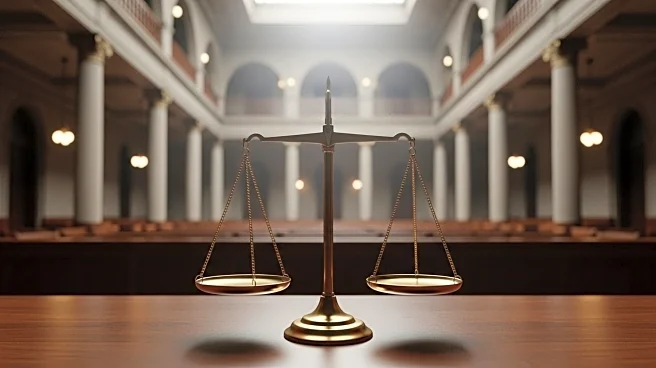What's Happening?
The Supreme Court is set to hear arguments in a case concerning Louisiana's congressional district map, which was redrawn to include two majority-Black districts following a lawsuit under the Voting Rights Act. Louisiana's Republican leaders argue that the use of race in drawing legislative districts violates the Constitution's 14th and 15th Amendments. The case comes before a conservative-majority Supreme Court, which has previously ruled against the Voting Rights Act in other cases. The outcome could affect the number of majority-Black districts and potentially influence the 2026 midterm elections.
Why It's Important?
This case holds significant implications for voting rights and racial representation in legislative districts. A ruling in favor of Louisiana could lead to fewer majority-Black districts, impacting minority representation in Congress and state legislatures. Historically, Black voters tend to support Democratic candidates, so a reduction in such districts could favor Republicans. The decision could also set a precedent for how race is considered in redistricting, potentially weakening the Voting Rights Act's ability to ensure fair representation for minority groups.
What's Next?
If the Supreme Court rules quickly, new district maps could be drawn before the 2026 midterm elections, altering the political landscape. The court's decision will be closely watched, particularly Justice Brett Kavanaugh's stance, as he previously expressed sympathy for arguments against race-based districting. The ruling could lead to further legal challenges and debates over racial gerrymandering and the constitutionality of race considerations in redistricting.
Beyond the Headlines
The case raises broader questions about the balance between constitutional principles and the need to address historical racial discrimination in voting. It challenges the interpretation of post-Civil War amendments and the Voting Rights Act, potentially reshaping the legal framework for racial equality in electoral processes. The outcome could influence future legislative and judicial approaches to race and representation in the U.S.









